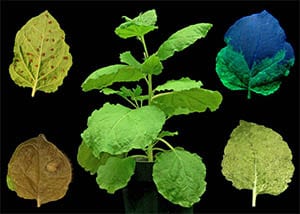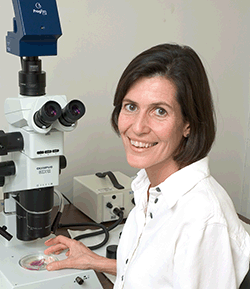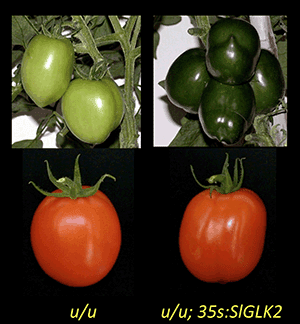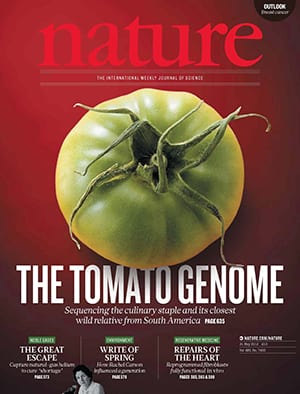BTI Intern Presents at SACNAS
The 2012 SACNAS National Conference “Science, Technology, and Diversity for a Healthy World” will take place in Seattle, Washington and BTI educators and interns will be in attendance.
A Twisted Tale: Plant Roots Form Helices as They Encounter Barriers
The science of how and why plant roots get their shape, it turns out, is a twisted tale.
A Wild Relative of Tobacco Offers Insight into Molecular Plant Biology at BTI
The genome of an experimentally important relative of tobacco has been sequenced by US and Canadian researchers.
Plant Biology Outreach at Monroe Community College Rochester, NY
Sixty undergraduates at Monroe Community College in Rochester, NY are learning some classic biology concepts in new ways, and they are using plants to do it.
BTI Scientist Maria Harrison is Co-principal Investigator on $6.5M NSF Award
The research project will study genes responsible for beneficial symbioses with bacteria and fungi. Work in the Harrison lab will focus on the plant-fungal AM symbiosis and how it improves phosphorus uptake in plants.
Powerful Screening Exposes the Roles of Salicylic Acid
By identifying the proteins which bind the plant hormone salicylic acid and potentially mediate its myriad physiological effects, Dr Daniel Klessig is unravelling the complex roles these hormones play in abiotic and biotic plant stresses.
Researchers Discover Link between Tomato Ripening, Color, and Taste
According to an old country song, the only two things money can’t buy are true love and homegrown tomatoes. How true – those perfect, red tomatoes from the store just can’t match ones plucked from the garden. Now, researchers have identified the gene that controls...
Former BTI REU Intern Receives Fellowship from the American Society of Plant Biologists
Hannah De Jong an undergraduate in the Georg Jander lab, received a Summer Undergraduate Research Fellowship from the American Society of Plant Biologists (ASPB).
Tomato Genome Becomes Fully Sequenced – Paving the Way for Healthier Plants
For the first time, the genome of the tomato, Solanum lycopersicum, has been decoded.
Compounds in Worms May Lead to Parasite Treatment
All of these nematodes speak the same chemical language,” through the use of compounds called ascarosides, said study co-author Frank Schroeder.










